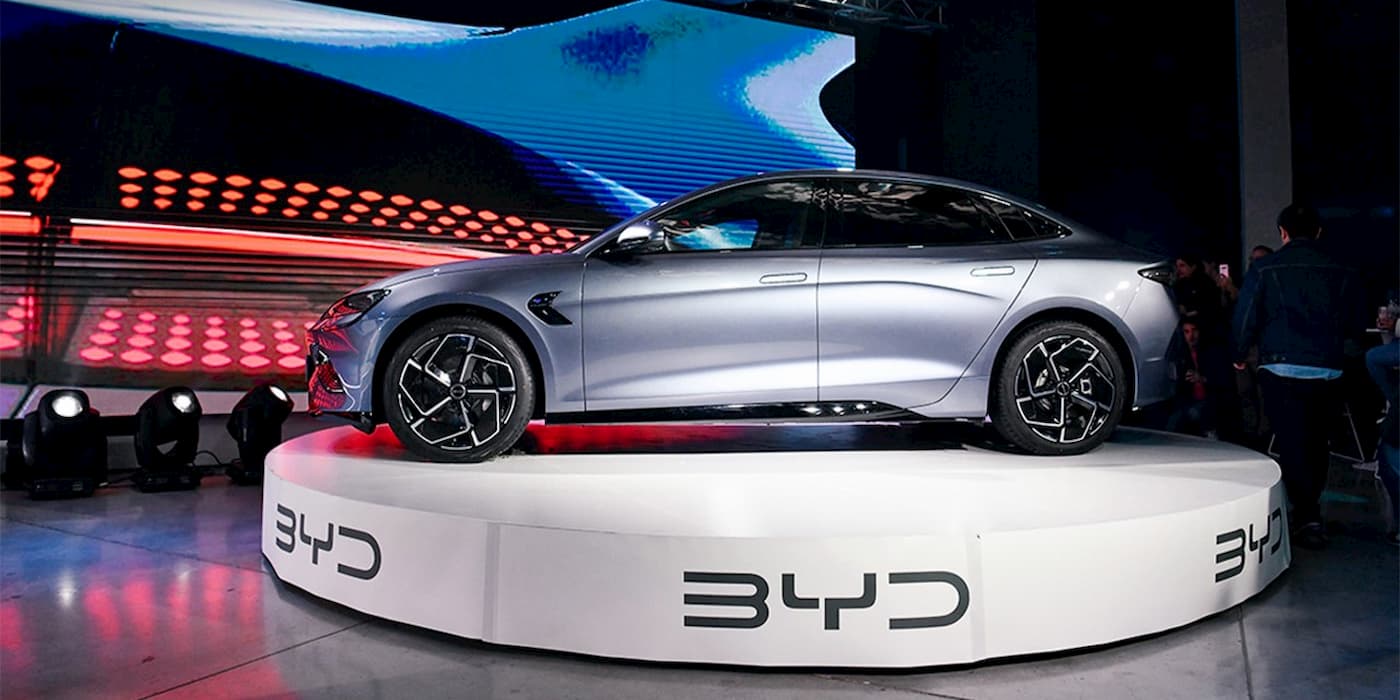
BYD’s answer to the Tesla Model 3 is gaining LiDAR and other design improvements for the new 2025 model year. BYD revealed the new 2025 Seal EV Friday as it looks to continue its dominant run in the global electric vehicle market.
BYD unveils new 2025 Seal EV
After launching the lower-priced Seal EV Honor Edition, starting at $25,000 (179,800 yuan), in March, BYD unveiled the new 2025 model year on Friday.
The Seal is BYD’s answer to the Tesla Model 3 as a sleek, fully electric, everyday sedan. BYD calls the EV sedan a “true masterpiece,” boasting its signature X-shaped front-end design.
BYD officially unveiled the first images of the 2025 Seal EV in a new “Sky Purple” color, claiming “fashionable and elegant” is coming.
One of the most noticeable changes is the added LiDAR on the roof. The new sensor is from the BYD-backed Robosense, a leading LiDAR provider. The Seal is expected to gain new ADAS capabilities as BYD dives deeper into smart driving tech.
Other design upgrades include a bold, red “BYD” logo on the back, replacing the previous “Build Your Dreams” badge.
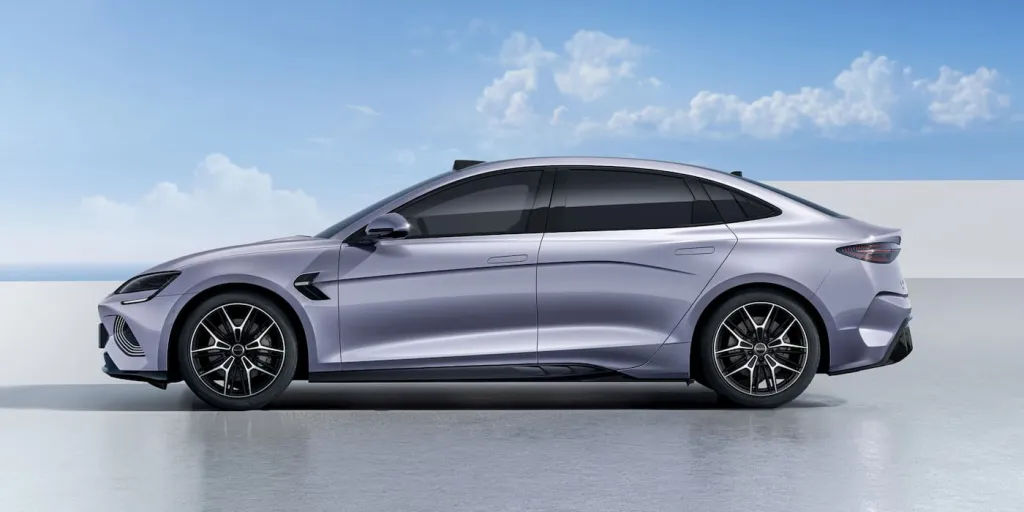
Matching the Tesla Model 3
At 4,800 mm long, 1,875 mm wide, and 1,460 mm tall with a wheelbase of 2,920 mm, the BYD’s Seal is nearly the same size as Tesla’s Model 3 (4,720 mm long x 1,933 mm wide x 1,411 mm tall).
Based on BYD’s new e-Platform 3.0, the Seal EV gets up to 404 miles (650 km) CLTC range. That’s with the larger (80.64 kWh) battery. The Seal EV is offered with two battery options, 61.44 kWh or 80.64 kWh providing 317 mi (510 km) to 404 miles (650 km) CLTC range.
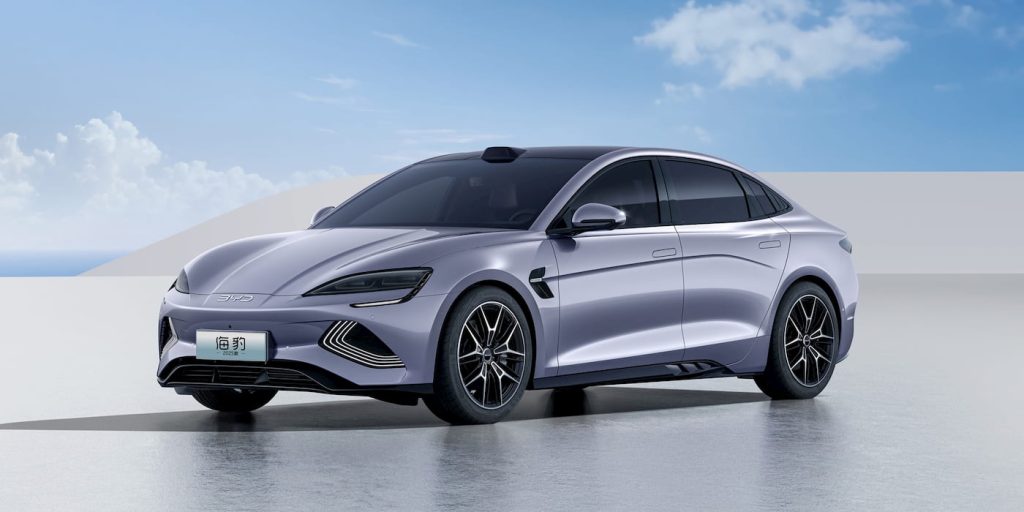
In comparison, Tesla’s Model 3 gets up to 443 miles (713 km) CLTC range in China. That’s with the Long-Range AWD model, starting at 271,900 yuan, or roughly $37,800.
The base Tesla Model 3 RWD starts at 231,900 yuan ($32,300) with up to 377 miles (606 km) CLTC driving range.
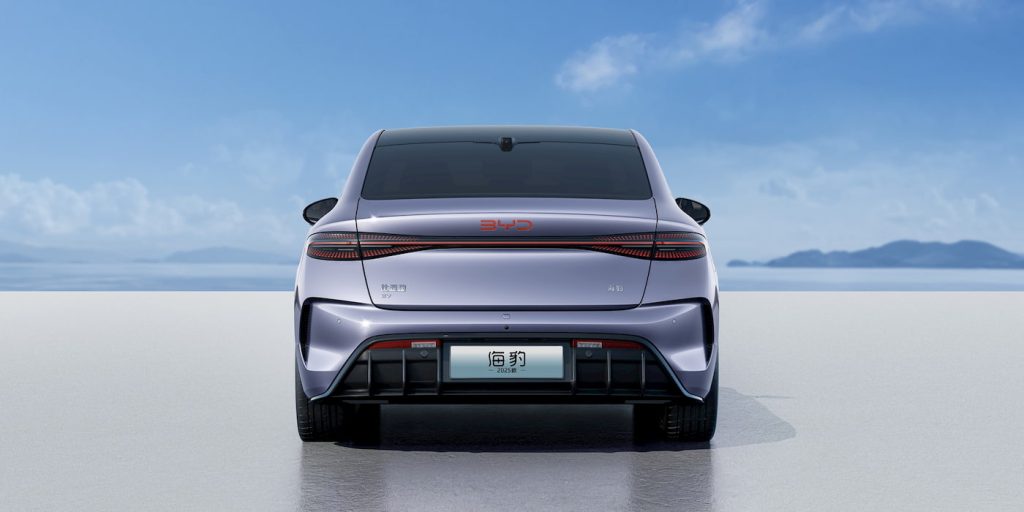
BYD has yet to reveal prices, but they are expected to start around $25,000 (179,800 yuan), like the Honor Edition model.
The new Seal comes after Tesla’s new Model 3 Performance began rolling out in China earlier this summer.
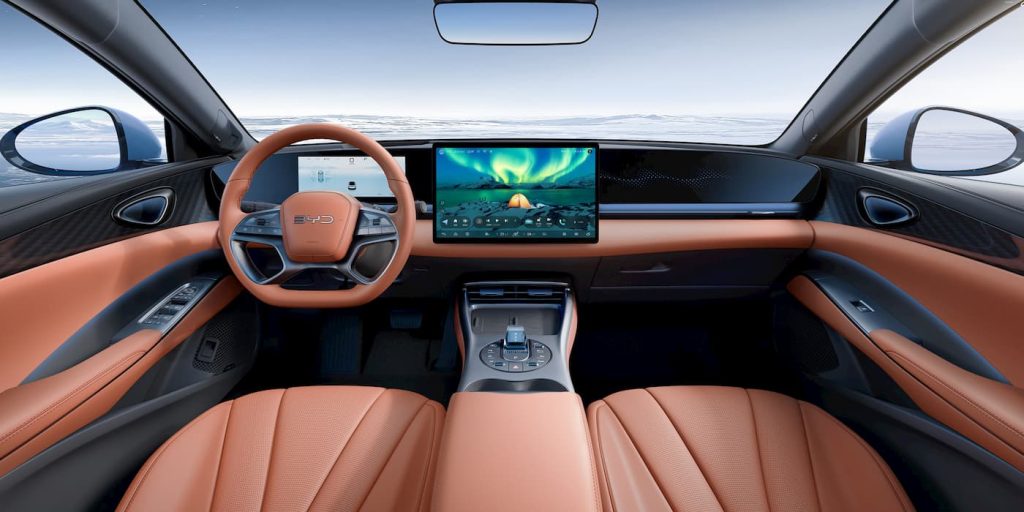
Will BYD match it with a performance model? The new electric sedan will launch in China on August 8, 2024. We will learn more next week. Check back for the full details.
Update 8/5/24: BYD unveils the first images of the upgraded 2025 Seal EV interior (check it out here).
Update 8/8/24: BYD officially reveals the new 2025 Seal EV, undercutting Tesla Model 3 prices by nearly $8,000.
Electrek’s Take
BYD sold a record +342,000 new energy vehicles (including PHEVs) last month despite EV sales slipping for the second straight month.
The new BYD Seal EV could boost sales with added ADAS features, as buyers in China are increasingly looking for advanced features.
After signing a landmark deal with Uber to deploy 100,000 EVs across its global network, BYD said it would collaborate with the rideshare giant on autonomous driving tech. Interestingly, Tesla’s Elon Musk commented on an X post, saying, “BYD needs to change course fast, or they’re in trouble.”
The comment was in response to a clip from a CNBC article citing, “A BYD spokesperson had said in April that year that fully autonomous driving is “basically impossible” and that the technology would be better applied to manufacturing.”
Top comment by Blake
Wow! I was told by someone “who knows manufacturing better than anyone else on the planet” that “LiDAR is too expensive” and hence “a fool’s errand”.
Yet here we have it in a mass market BEV. What’s also impressive is that the Seal has only been recently released in several countries, yet they are all about to get a major model hardware upgrade
Despite this, BYD revealed its XUANJI Architecture earlier this year. BYD’s chairman and president, Wang Chuanfu, said, “Integrated Vehicle Intelligence is set to steer the future direction of vehicular intelligence and to accelerate the transformation of the automotive industry.”
BYD claimed it “has been leading in China for L2-Level intelligent driving deployment” and was the “first automotive brand to receive the L3-level test license.”
The company said it aims to break down the barrier to intelligent driving globally by offering more advanced tech at a lower cost. BYD is investing $14 billion (RMB 100 billion) in intelligent driving to secure its position for the future. It looks like the new Seal EV will play a role in BYD’s ADAS strategy.
Source: CarNewsChina, BYD
FTC: We use income earning auto affiliate links. More.



Comments